#bram stokers Dracula
Explore tagged Tumblr posts
Text
@themousefromfantasylandefrom
Dracula and Jonathan’s Tango - from The Polish National Opera production of ‘Dracula’.
With Choreography by Krzysztof Pastor and Music by Wojciech Kilar.
71K notes
·
View notes
Text
Why set Dracula: 2004 in 2004?

Earlier this week, we revealed that our next project will be Dracula: 2004, an exciting new adaptation of Bram Stoker’s Dracula set in the early Noughties. But the question is, why 2004? It can’t just be for Britney Spears, right?
Well, as much as I love Britney Spears, she’s not the only reason I chose the year 2004 as the setting for this version of Dracula. If you want to read a 1,500 word (!) essay on the advancement of technology, the themes of gothic literature, and why I love Dracula, then you’re in the right place. Buckle in for an outpouring of English-teacher-nerdery (yes, I really am an English teacher in real life!) and prepare to be lectured to.
The thing about Dracula is that it’s already been done to death (pun unintended) a thousand times. You’ve got the classic gore of Hammer Horror; the Ye Olde Copyright Issues of Nosferatu; the romance of Coppola’s remake; the odd (but strangely compelling) Van Helsing, starring Hugh Jackman; and more recently, Renfield and Last Voyage of the Demeter. And that’s not even broaching the world of audio fiction, with Murray Mysteries, RE. Dracula, Dracula: The Danse Macabre and The Holmwood Foundation, all of which came out (or are coming out soon) within the past five years. The point is, the market is absolutely swimming with vampires. We’ve got piles of absolutely fantastic vampire fiction coming out of our ears, even only focusing on Dracula content. So why the hell am I making more?
Well, firstly, I am personally of the belief that you can’t have too much of a good thing. I am a particular fan of the “two cakes” metaphor (pictured below) for the precise reason that there is almost certainly a nerd out there who, like me, will look at yet another Dracula audio drama out there and think “Two cakes!” If you are that person, then congratulations: you are my target audience!
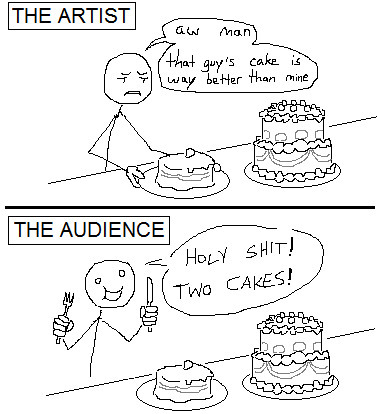
(Image credit to Tumblr user @stuffman)
Secondly, most of the settings for Dracula adaptations appear to fit into one of two settings: original time period, or thereabouts (thinking of Danse Macabre here) or modern day (such as Murray Mysteries). To be absolutely clear, I adore these shows and am not in any way criticising them! But when I was rereading Dracula back in 2022, it occurred to me that there was an untapped market: 2000s nostalgia.
Ah, the smell of hair that has been aggressively hairsprayed and backcombed within an inch of its life! The sheer impracticality of wearing a dress over jeans, and doing it anyway just because it looked cool! The technological gleam of the Blackberry phone’s 5000 different keys, ready to incomprehensibly speed-text at a moment’s notice!
Most people are either old enough to remember this, or young enough to want to. The Noughties were an absolutely fascinating time period, one that many people look back on with a certain degree of fondness (especially considering the current state of the world). It also happens to bear a striking resemblance to the late 19th century, for reasons I am about to explain.
Bram Stoker first published his horror novel Dracula in 1897. At this point in history, Britain was a global powerhouse, having colonised half the world and with the British Empire at its height (and, many would argue, at its worst). Stoker explores one of the contemporary anxieties of the British public in great detail: the fear of the Other. While this is a common theme in most Gothic fiction, Stoker characterises the Other through the villainous Count Dracula, a man from the “uncivilised” Eastern Europe who (literally) drains dry the "honourable" people of Britain, taking advantage of their kindness and generosity. He even goes so far as to “invade” the very island, proceeding to torment and prey upon innocent women, and must be driven back and killed by the "noble" British (and Dutch/American) protagonists. Count Dracula could be said to represent the contemporary British fear that the people they had colonised and exploited would turn on them and thus invade their country.
In 2004, Britain was at war with both Afghanistan and Iraq. This involvement in global politics – particularly so soon after 9/11, in 2001 – resulted in public backlash from multiple directions. Immigration was a topical issue: many Brits rejected the notion of refugees seeking asylum in the UK after escaping these war zones, viewing it as an “invasion” (sadly, not much seems to have changed here). This same disconnect between cause and effect is present in both the public of 1897 and 2004, particularly in the treatment of Roma people (although we have taken a detour away from Stoker's more unpalatable views on this topic).
But British politics are not the only connections we can draw between these two time periods. One of the key Gothic themes is science and technology versus religion and belief, and this theme is very heavily explored throughout Dracula, particularly through the character of Van Helsing. Bram Stoker would have been alive to experience ground-breaking inventions such as the traffic light, the telephone, the lightbulb, the steam turbine and fingerprint classification, all before Dracula was even written. With scientists and engineers learning how to play God at every turn, was it any wonder that authors of Gothic literature were inspired to explore this contrast, in other works like Dr. Jekyll and Mr. Hyde, or Frankenstein?
Similarly, 2004 was a time of exciting innovation, particularly relating to communication (a major motif in Dracula!). Not only was it in the thick of the early digital age, where internet access was fast-becoming universal and most people could now afford to carry a mobile phone, but it also signified the beginning of the social media era: Facebook was in development that year, and Myspace was gaining more users by the day. If you could go back in time and explain to your younger self the sheer scope of impact that social media would one day have on the world, would they believe you?
The sheer, terrifying enormity of change that occurred in both of these eras simply cannot be understated. In my opinion, there’s a reason that Buffy was so popular in the 90s and why Twilight burst into life only a few years later: change brings fear of modernity, fear of modernity brings a craving for tradition, and a craving for tradition needs monsters to feed it. I have altered some of the religions of the core cast in order to better reflect a more diverse modern society (there’s a whole different essay to be written on that choice alone) but the principle stays the same: with light comes shadows.
But wait, there’s more! One key reason why I selected 2004, of all the years, as a setting relates sharply to the social issues of Stoker’s time that I felt could not be adequately explored in a more modern Britain. In 1895, Stoker’s contemporary and acquaintance Oscar Wilde was imprisoned for gross indecency (relating to homosexuality), and one month later, Stoker began to write Dracula. Stoker – possibly to protect his own public image – condemned Wilde and ceased contact with him, but it’s plausible that Wilde’s influence remains within the character of Count Dracula.
Certainly, despite Stoker portraying the Count as a villain, who takes advantage of poor Jonathan Harker, he also writes the strangely possessive line “This man belongs to me!” when the three female vampires attempt to seduce Jonathan (and drain him). Count Dracula is both a man to be feared and repelled by… but also attracted to, a conundrum that Stoker (who many theorise to have been a closeted queer man) would have been intimately familiar with.
This brings us back to 2004, the year after Section 28 was repealed. For those of you who don’t know, Section 28 was first implemented by the UK’s Conservative government in 1988, and prohibited the promotion of homosexuality by local authorities. This meant, for example, that teachers weren’t allowed to teach children that being gay was normal and acceptable – they could acknowledge that queer people existed, but were not allowed to frame it positively. While it wasn’t illegal to be gay – and after 2003, it was even legal to promote it – it was still highly stigmatised in the UK, and many people were forced to remain closeted, similar to Wilde and his friends. Sexual repression is a substantial theme of Gothic literature and one that I very much wanted to explore in this adaptation, so I chose this era to reflect the concentrated and systemic efforts to suppress the presence of queer and trans people in the UK.
TLDR: To summarise, I chose the year 2004 as the setting for Dracula: 2004 because I felt that this era poetically reflected Stoker’s own – especially in the areas of global politics, technological innovation and societal repression of homosexuality – and felt that this would be the perfect era to explore some of Gothic literature’s most exciting themes: fear of the Other, science vs religion, and sexual repression. Additionally, 90s/00s music is FIRE and I also really wanted to get a Buffy reference in there. So sue me.
Dracula: 2004 will begin crowdfunding in April 2025! Keep your eyes on our social media for updates.
Care to take a bite?
#Dracula: 2004#dracula#dracula daily#bram stokers dracula#count dracula#audio drama sunday#podcast recs#audio drama recs#gothic literature#gothic themes#nosferatu#murray mysteries#re dracula#dracula the danse macabre#dtdm#the holmwood foundation#renfield#last voyage of the demeter#essay#classical literature#2000s#2000s emo#2000s nostalgia#2000s aesthetic#early 2000s
23 notes
·
View notes
Text
I don't think we give Jonathan Harker nearly enough credit for his absolutely unhinged choices. In 1897, that pathetic wet cat of a man was written with enough grit, willpower, and raw human stupidity to rival any of our modern horror podcast protagonists. When faced with a centuries-old vampire, in a coffin, drenched in fresh blood, he really thought the best thing to do was to hit it in the face WITH A SHOVEL. The audacity. The misplaced confidence. The sheer desperation. No plan. No hesitation. Running on fear and spite alone. And i fucking love him for it. Truly the character of all time.
#it's like he was written to be a podcast protagonist over a century before horror podcasts existed#imagine what a group therapy session with jonathan harker + arthur lester + jon sims would look like#jonathan harker#dracula#bram stokers dracula#dracula daily#horror podcast protagonists#lit student screams into the void
7K notes
·
View notes
Text



Bram Stoker’s Dracula — 1992, dir. Francis Ford Coppola
#horror#bram stokers dracula#horroredit#userhorroredits#filmedit#userhorrorgifs#filmgifs#doyouevenfilm#horrorwomensource#fyeahmovies#moviegifs#cinemapix#dailyflicks#mina harker#winona ryder#lucy westenra#sadie frost#jonathan harker#keanu reeves#mine*#bsd*#horror*
5K notes
·
View notes
Text
Here for the back dialogue

so u guys liked that previous drawing a lot, huh
(so we're shipping these two now, right. what does one even call this --- draculashipping?? nosferacula???)
#WANNA GO TO ***STAKE***-HOUSE???? I'M DEAD#dracula#bram stokers dracula#dracula 1931#bela lugosi#nosferatu 2024#nosferatu#count orlok#nosferacula#selfcest
300 notes
·
View notes
Text

I miss Dracula so heres a silly drawing of it as a muppet movie XD
I hope you enjoy, and have an AWESOME day!!
#count dracula#jonathan harker#count von count#the muppets#muppet#bram stokers dracula#do you think in this rendition Jonathan treats this like knows hes in Dracula but in reality its muppet dracula?
2K notes
·
View notes
Text

There’s been so much hype for Nosferatu and confusion over his facial hair, that I had to draw some Novel Dracula and his very canonical mustache. The description of him post-feed, bloated, leech-like in his coffin….golly, still haunts me to this day. I imagine him being very animalistic…with the boyar fur coats giving him a hairy, tarantula/wolf appearance. Maybe his mouth is always a little open…and I just know that guy smells so bad. He’s hardly the debonair Bela-type he’s become.
Anyway, this was fun…I’m snowed in this weekend, so I plan to draw as much as I can <3
#Dracula#bram stoker#vampire#sketch#nosferatu#but not really but also kinda because Nosferatu is Dracula from another packula#tw blood#sketch dump#bram stokers Dracula#Count Dracula
2K notes
·
View notes
Text





Felt like drawing a bunch of Dracula memes just to be silly :p
#abraham van helsing#jack seward#john seward#jonathan harker#count dracula#mina murray#mina harker#quincey morris#quincey p morris#lucy westenra#jonmina#westenray#dracula#bram stokers dracula#dracula daily#re: dracula#dracula daily spoilers#1k#2k#3k#4k
5K notes
·
View notes
Text

This is why no matter what, Francis Ford Coppola's Dracula and every tv show and musical out there will never be hated close to enough actually
#dracula#jonathan harker#mina harker#count dracula#lucy westenra#mina murray#nosferatu 2024#thomas hutter#ellen hutter#nosferatu#robert eggers#francis ford coppola#dracula daily#dracula 1992#bram stokers dracula#bram stoker's dracula#re: dracula
2K notes
·
View notes
Text




Mina Harkers red dress in Bram Stokers Dracula in 4k
#dracula#mina harker#bram stokers dracula#perioddramaedit#period drama#costume design#eiko ishioka#gary oldman#wynona ryder#4k#periodedit#gothic horror
1K notes
·
View notes
Text

Have a Mina doodle bc I missed drawing her
#gothic lit#classic literature#gothic literature#classic lit#goth lit#dracula#dracula daily#mina harker#mina murray#re: dracula#bram stokers dracula
2K notes
·
View notes
Text
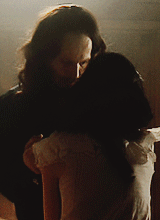
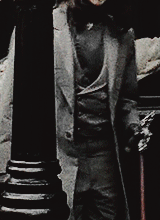
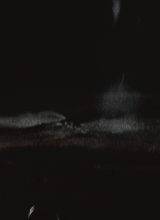
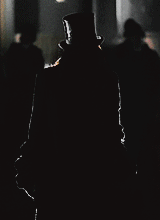
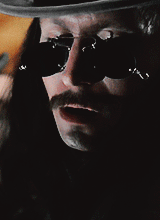
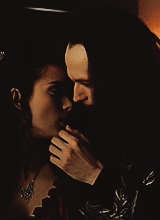
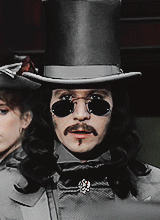
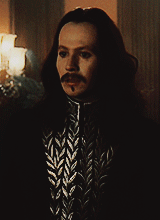
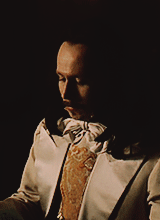
"Gary Oldman said that when he first read the script, he decided it would be worth doing the movie just so he could feel what it would be like to say to someone, "I've crossed oceans of time to find you."" Horror Character Appreciation - Gary Oldman as Dracula in Bram Stoker's Dracula (1992) dir. Francis Ford Coppola
#Dracula#Bram Stokers Dracula#Bram Stoker's Dracula#hc*#horroredit#userhorroredits#dailyhorrorfilms#classichorrorfilms#classichorrorblog#horrorfilmgifs#userbrittany#gif#mine#made by me#photoset#gifs#gifset#moviegifs#filmgifs#filmedit#filmdaily#tvandfilmdaily#dailytvfilmgifs#cinemapix#doyouevenfilm#fyeahmovies#dailyflicks#moviehub#filmcentral#junkfooddaily
2K notes
·
View notes
Text
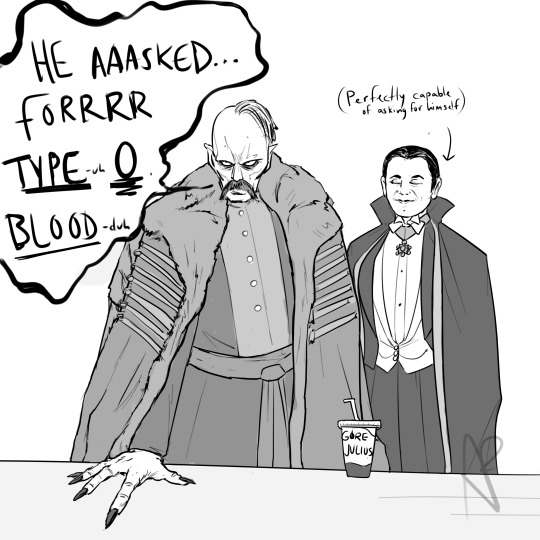
two funny guys visit the monster juice store
#nosferatu#nosferatu 2024#count orlok#bram stokers dracula#dracula#bela lugosi#dracula 1931#vampires
4K notes
·
View notes
Text
Dracula: 2004 early schedule

Excited about our new project? You should be! Here's what to expect for the next few months:
March: Promotion - teasers, graphics, cast reveals and more!
April: Crowd-funding - your opportunity to secure perks, donate and help us raise some excitement around this show!
May: Recording begins...
For a bit of context, Dracula: 2004 is 38 episodes (divided into 3 parts) of glorious and unrestrained vampire horror, each episode with a runtime of about 20 minutes. We plan to release them on a weekly schedule, and we will be recording them all in one go, which is why we need time to record and edit. But trust me: this show is absolutely going to be worth the wait.
Care to take a bite?
#dracula: 2004#dracula#count dracula#bram stokers dracula#dracula daily#jonathan harker#mina harker#audio drama#indie podcast#podcasting#uk audio drama#podcast#uk podcasts#audio drama recs#podcast recs#upcoming projects
26 notes
·
View notes
Text
Is she Lucy Westenra, or is she just a vessel for the writer's barely disguised fantasy of a women being punished for her promiscuity? Is she really"Bram Stoker's" Lucy Westenra: a naive, innocent 19 year old, with a cheery personality and a bright future ahead of her? Or has the writer instead just slapped her name on an OC that behaves nothing like her, and- with none of the grace or decorum that Lucy's tragically short story deserves- sexualized her slow and agonising death as much as possible, whilst very unsubtly doing their best to blame her for being murdered, so that we won't object to her being killed again later in an even more gruesome and sexual manner?
#every dracula adaptation gets every character wrong- but the way Lucy is treated in particular makes my blood boil#she's not stupid for being naive. she's not stupid for fixating on marriage. she's 19. A TEENAGER. she's allowed to be young#of course she doesn't have much life experience! that's why it's so tragic! when she dies we mourn the person she was meant to become#and regardless of however adaptations try to spin it; she did not want to be killed. she wasn't aware of dracula like the other characters#she didn't deliberately let dracula kill her. she didn't ask to be a vampire. she wasn't in love with dracula or anything like that#she died not understanding what was happening to her. she never lost her naivety. and that makes it even more tragic in my opinion#anyway thanks for coming to my ted talk#i think my old dracula hyperfixation is reigniting and i don't have the strength to stop it lmao#lucy westenra#dracula#bram stokers dracula#dracula daily#lit student screams into the void
2K notes
·
View notes
Text














👻 SARA’S SPOOKTOBER 🎃 ↳ BRAM STOKER'S DRACULA (1992) Dir. Francis Ford Coppola
#filmtv#filmtvdaily#filmtvcentral#filmgifs#usersource#useroptional#usercinema#cinemapix#dailyflicks#halloweenedit#spooktober#horrorgifs#horrordaily#horroredit#bram stokers dracula#halloween#dracula#mine
971 notes
·
View notes